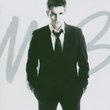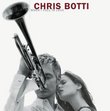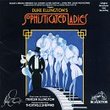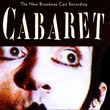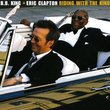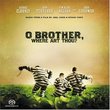| All Artists: Kurt Weill, John Mauceri, Ute Lemper, Milva, RIAS Berlin Sinfonietta, RIAS Kammerchor, René Kollo, Mario Adorf, Helga Dernesch, Susanne Tremper Wolfgang Reichmann, Rolf Boysen Title: Weill - The Threepenny Opera / Kollo ˇ Adorf ˇ Dernesch ˇ Lemper ˇ Milva ˇ Reichmann ˇ Tremper ˇ Boysen ˇ RIAS ˇ Mauceri Members Wishing: 1 Total Copies: 0 Label: Polygram Records Release Date: 1/5/1990 Album Type: Original recording reissued Genres: Pop, Classical Styles: Vocal Pop, Opera & Classical Vocal Number of Discs: 1 SwapaCD Credits: 1 UPC: 028943007528 |
Search - Kurt Weill, John Mauceri, Ute Lemper :: Weill - The Threepenny Opera / Kollo ˇ Adorf ˇ Dernesch ˇ Lemper ˇ Milva ˇ Reichmann ˇ Tremper ˇ Boysen ˇ RIAS ˇ Mauceri
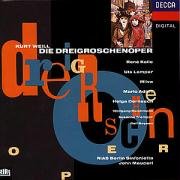 | Kurt Weill, John Mauceri, Ute Lemper Weill - The Threepenny Opera / Kollo ˇ Adorf ˇ Dernesch ˇ Lemper ˇ Milva ˇ Reichmann ˇ Tremper ˇ Boysen ˇ RIAS ˇ Mauceri Genres: Pop, Classical
The son of a cantor, Kurt Weill was one of the 20th-century lyric stage's great innovative geniuses. With Die Dreigroschenoper, he and collaborator Bertolt Brecht (and Brecht's often unacknowledged partner Elisabeth Hau... more » |
Larger Image |
CD DetailsSynopsis
Amazon.com essential recording The son of a cantor, Kurt Weill was one of the 20th-century lyric stage's great innovative geniuses. With Die Dreigroschenoper, he and collaborator Bertolt Brecht (and Brecht's often unacknowledged partner Elisabeth Hauptmann) created a cultural landmark that is still the most resonant emblem of the heady days of the Weimar Republic. Although Brecht has usually taken the limelight for his acerbic social satire of bourgeois complacency--adapting the 18th-century John Gay's original Threepenny Opera, itself a parody of operatic conventions--Weill's sly amalgam of jazz, cabaret, and art song idioms vividly colors the work as one unforgettable number follows the next. While Brückner-Rüggeberg's 1958 recording has long held pride of place due to the authority of Lotte Lenya--Weill's original Jenny and lifelong muse--this 1990 release is a strong competitor and perhaps an even better introduction to the work. John Mauceri, a passionate advocate of Weill's less well-known works for the Broadway stage, achieves a tight sense of ensemble from the composer's iconoclastic scoring and gives the abrupt transitions of the piece a highly effective, jagged-edged quality. The spoken part of the text is drastically cut, and on the issue of which musical direction to pursue--operatic technique or cabaret campiness--this version sensibly recognizes the diversity of authentic Weill performing styles, making room in its cast for the classically trained Helga Dernesch and René Kollo as well as Ute Lemper's cabaret smarts. The result is engrossing and gives the spotlight to Threepenny Opera's subversive blend of irony and humor. --Thomas May Similar CDs
Similarly Requested CDs
|
CD ReviewsA wonderful interpretation of the genius of Brecht and Weill Linda LeBoutillier | Eagle, PA United States | 03/10/2001 (5 out of 5 stars) "I own both this version and the Bruckner version of the Three Penny Opera. They are both great in their own right, and I love them both. I this version, Ute Lemper is wonderful! She has a masterful interpretation of Weill's and Brecht's vision, and I have gone on to purchase other works by her. This version definitely is more sophisticated instrumentally. The union of Brecht as a revolutionary writer and Weill as a revolutionary composer was so momentous, and what they produced together so little, that I want to own every version of what they did together. I performed in a Brecht play, the Caucasian Chalk Circle, directed by a famous (then) East German director who was permitted to come to America then. Not one song was memorable. That dinamic of Weill and Brecht was not there. They truly made history in their few works together.If you want to know about their dinamic, this version of The Three Penny Opera will give it to you. This version has many more dialogue links between the songs. You get the Ballad of the Pirate Jenny sung both the way it was first intended and the way it evolved (by Polly at her wedding and then by Jenny). The minuses of this recording: I miss Lotte Lenya. I hate the translation provided with the CD. You just have to buy the other version (Bruckner) for that. There was some discussion about what Brecht intended and whether this version supplied that. I have to say from my experience with a Brechtian director, this version is true. My German director made us study the paintings of Bosch to set the scenes, insisted on the innocence of certain characters. These Brechtian conventions are carried out totally. At the end when Mack the Knife is pardoned and you hear the collective "Ah," that is a Bosch scene. The innocence of Ute Lemper is wonderful. Compared to the Bruckner version, she has a bit more defiance when she is trying to explain how she ended up with Mack the Knife. I just love it!" Worth having, even if you prefer the "traditional" rendition Linda LeBoutillier | 02/15/2000 (5 out of 5 stars) "I have both this version and Brückner-Rüggeberg's 1958 version. Really, both are worth listening to. This version has, of course, much better sound quality and all the performers are notably better singers. This version was the first one I listened to (over and over again, in point of fact). Basically this recording confirms that, whether Brecht/Weill intended it or not, they created one of the best "muscials" of all time. The songs are very memorable and catchy. Even though I don't know German, they run through my head more readily than, say, the tunes from Cats. (I'm sure that Brecht/Weill are now rolling over in their respective graves :-)When I first heard the older recording, I disliked it due to the seemingly lower quality. However, if you give it a chance, it really begins to grow on you. It was being performed as it was meant to be and the coarser quality fits the mood of all the songs well." Possibly the definitive recording Kelly Martino | Austin, TX USA | 11/24/2000 (5 out of 5 stars) "I purchased my first Weill recordings in 1960, the off-broadway Threepenny Opera, and Lenya's Berlin Theater Songs. I have treasured them all my life. Lenya was, of course, incomparable, but Ute Lemper carries on her special genius. This new recording is as near a perfect realization of this unique masterpiece. John Mauceri gives the unique orchestration nuance that even Klemperer missed in his masterful Kleine Dreigroschenmusik. Every member of the cast, even the bit roles, is perfect in the characterization. Kollo is the first performer since Harald Paulsen (the origninal Mackie Messer) to bring all of the tradition of Viennese operetta to this music. He is a miracle. Macheath has subtle characteriztion hitherto unknown except from Paulsen. Most noteworthy is the Jenny of Milva. Two delightful bonuses in the recording: a reprise in Act 2 of Seerauber Jenny by Milva (the Jenny) and the inclusion of Lucy Brown's aria after the Jealousy duet. There is brief dialog before most pieces which adds a dramatic integrity to the recording. I cannot find high enough praise for this new treasure."
|

 Track Listings (27) - Disc #1
Track Listings (27) - Disc #1

